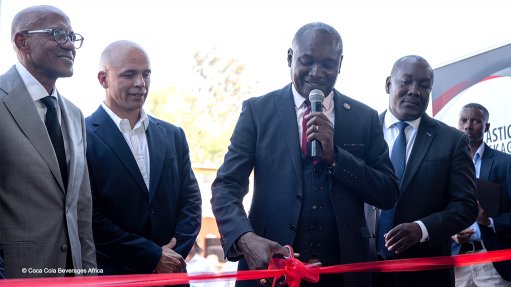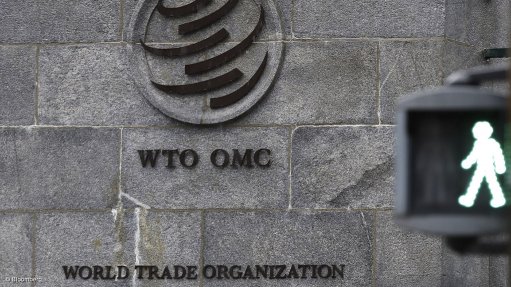UK Premier seeks to protect globalisation by ensuring it is fairer
British Prime Minister Theresa May has defended globalisation, while warning its downsides must be addressed to ensure continued public support for free markets and free trade around the world. She was delivering the annual Prime Minister’s speech to the Lord Mayor’s Banquet, in the Guildhall, London, on November 14. Following the decision of the British people to leave the European Union (EU), a process popularly known as Brexit, and the election of businessman and reality TV star Donald Trump to be the next President of the US, she described the world as having been “transformed”. But she also affirmed that, under her government, the UK was going to be “the true global champion of free trade in this new modern world”.
“Change is in the air,” she observed. “And I think that if we take a step back and look at the world around us, one of the most important drivers becomes clear – the forces of liberalism and globalisation which have held sway in Britain, America and across the Western world for years have left too many people behind. Let’s be clear: those forces have had – and continue to have – an overwhelmingly positive impact on our world. “Liberalisation and globalisation have delivered unprecedented levels of wealth and opportunity. They have lifted millions out of poverty around the world. “They have brought nations closer together, broken down barriers and improved standards of living and consumer choice. And they underpin the rules-based international system that is key to global prosperity and security and which, I am clear, we must protect and seek to strengthen.”
But people have been left behind, including in rich countries, their jobs and wages hit by outsourcing and new competition. “[W]hen you refuse to accept that globalisation in its current form has left too many people behind, you’re not sowing the seeds for its growth but for its ruin,” she averred. “When you fail to see that the liberal consensus that has held sway for decades has failed to maintain the consent of many people, you’re not the champion of liberalism but the enemy of it. . . . [T]here is no contradiction between embracing globalisation, and saying it has to be managed to work for everyone.”
“So, at this moment of change, we must respond with calm, determined, global leadership to shape a new era of globalisation that genuinely works for all,” she stated. “We should be confident about our ability to do so.”
May naturally focused on what her administration intended to do in the UK. She assured that, as long as the country remained in the EU, it would continue to push an “ambitious EU trade agenda”, such as the recently concluded trade deal with Canada. As Britain left the EU, the country would use the flexibility it gained from being able to negotiate directly with partners to develop new business with both old and new partners, as well as negotiate the best deal for the country with the EU.
“But . . ., to be the true global champion of free trade in this new modern world, we also need to do something to help those families and communities who can lose out from it. So government cannot afford to take a hands-off approach,” she stated. “We have to act to ensure that the prosperity delivered by free trade and free markets is shared by all.”
It is to this end that the British government is developing an industrial strategy. The purpose of this will be to create “the conditions where winners can emerge and grow, across all sectors, in all parts of the country and for the benefit of all”. It will not be about government trying to chose winning industries and/or companies. It will not be about trying to prop up businesses and sectors that are failing. The new strategy will seek to boost the strengths of each and every region of the country, so that every region and every segment of society will experience the benefits of economic growth.
“As I argued at my first G20 (Group of 20 leading developed and developing economies) summit earlier this year, we need every nation – developed and developing – to ensure that the benefits of trade are fairly shared. This will not just be good for them; it will enhance our own prosperity too. And it will be fundamental in maintaining global support for the free trade and open markets we believe in.”
Comments
Press Office
Announcements
What's On
Subscribe to improve your user experience...
Option 1 (equivalent of R125 a month):
Receive a weekly copy of Creamer Media's Engineering News & Mining Weekly magazine
(print copy for those in South Africa and e-magazine for those outside of South Africa)
Receive daily email newsletters
Access to full search results
Access archive of magazine back copies
Access to Projects in Progress
Access to ONE Research Report of your choice in PDF format
Option 2 (equivalent of R375 a month):
All benefits from Option 1
PLUS
Access to Creamer Media's Research Channel Africa for ALL Research Reports, in PDF format, on various industrial and mining sectors
including Electricity; Water; Energy Transition; Hydrogen; Roads, Rail and Ports; Coal; Gold; Platinum; Battery Metals; etc.
Already a subscriber?
Forgotten your password?
Receive weekly copy of Creamer Media's Engineering News & Mining Weekly magazine (print copy for those in South Africa and e-magazine for those outside of South Africa)
➕
Recieve daily email newsletters
➕
Access to full search results
➕
Access archive of magazine back copies
➕
Access to Projects in Progress
➕
Access to ONE Research Report of your choice in PDF format
RESEARCH CHANNEL AFRICA
R4500 (equivalent of R375 a month)
SUBSCRIBEAll benefits from Option 1
➕
Access to Creamer Media's Research Channel Africa for ALL Research Reports on various industrial and mining sectors, in PDF format, including on:
Electricity
➕
Water
➕
Energy Transition
➕
Hydrogen
➕
Roads, Rail and Ports
➕
Coal
➕
Gold
➕
Platinum
➕
Battery Metals
➕
etc.
Receive all benefits from Option 1 or Option 2 delivered to numerous people at your company
➕
Multiple User names and Passwords for simultaneous log-ins
➕
Intranet integration access to all in your organisation


















